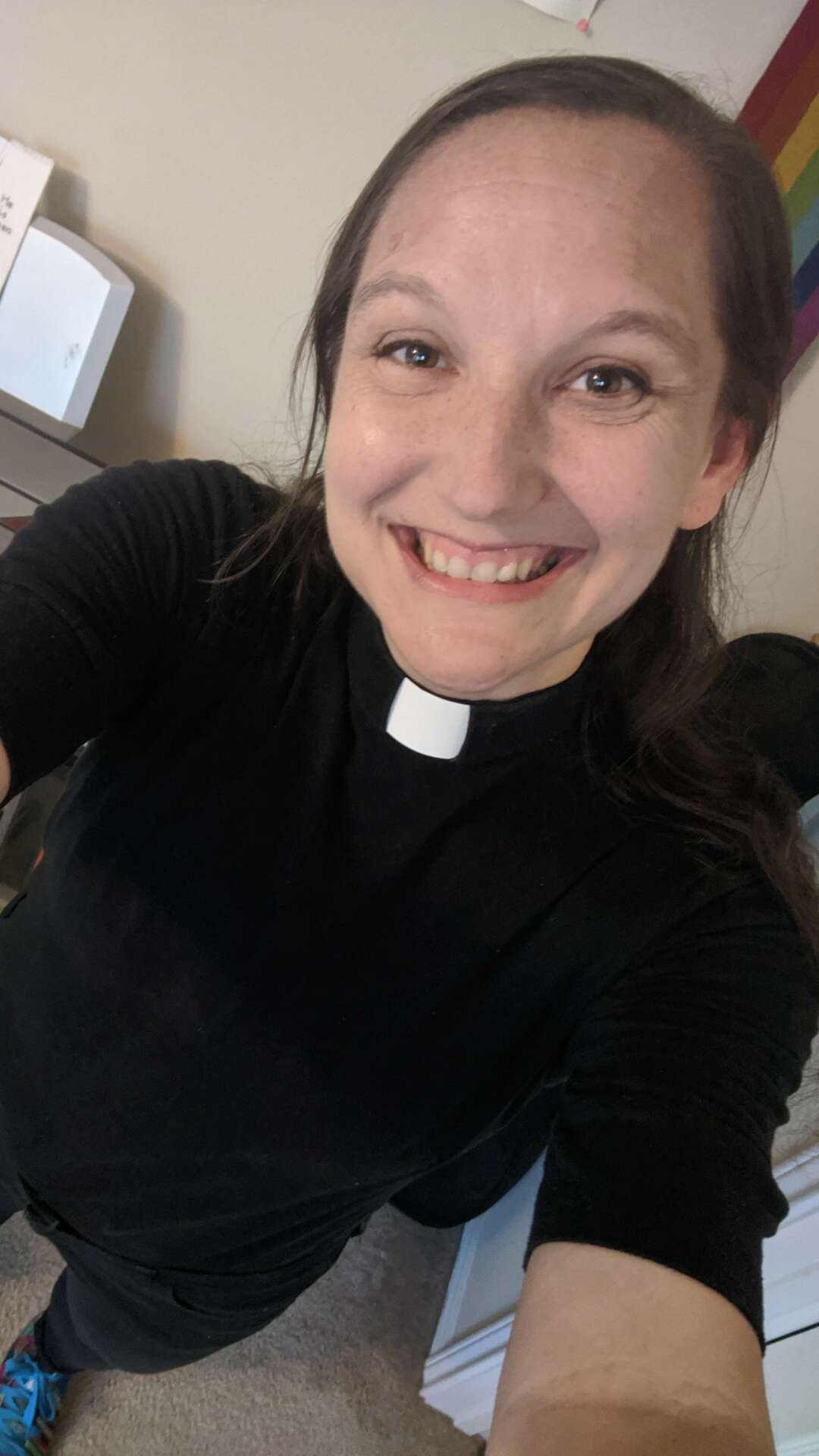Alright – so today we’ve got the honor of introducing you to Carrie Graham. We think you’ll enjoy our conversation, we’ve shared it below.
Carrie , appreciate you joining us today. Risk taking is something we’re really interested in and we’d love to hear the story of a risk you’ve taken.
In founding a non-profit ministry organization, our biggest annual risks come with fundraising season every fall. Somewhere between 40-50% of our annual budget comes from individuals’ donations, and the majority of the rest comes from grants and contracted projects for which we write proposals a few months in advance, then wait to learn of acceptance or not.
We don’t have wealthy donors, so our pledgers are devoted and generous. I am so grateful for the belief they have in our mission and our ability to be effective at it! Of course, this also means that if our donors are affected by economic downturns, so are we (as most non-profits are). Oftentimes, we do not know if our budget for the next year will be met until somewhere around New Year’s Eve of the outgoing year. My own livelihood is directly tied to this, so I wait in suspense each fall to ascertain if The Church Lab will have another chapter, and if my salary will come through to allow me to pay my mortgage and for my groceries, etc.
On some days, it can be easy to look at how fundraising is going and see what is not there yet, to worry about the needed gap getting filled in time to continue onward. Yet this is the very spiritually formative aspect of the work for which I am grateful. Learning to be open to what unfolds becomes a central endeavor in my work life. My biggest task each fall is to trust that if we do our best to ask for help in continuing our mission, that those who respond as our next year’s partners are exactly the people meant to be journeying with us, no more and no less. It becomes important to trust that any detours we need to make based on funding are needed detours.
Ten years in, this has only taught me wisdom and patience (and continues to do so)! Instead of being conquered by tempting fears of shortfalls, ultimately I am repetitively encountering gratitude and surprise at the incredible ways others’ generosity shows up. Worrying about potential problems is a funny endeavor, as problems arise, just not often the ones over which we worry. Generosity and uplifting kindness and support are all similar in their unpredictability; they often show up in ways I cannot anticipate, yet with a richly uplifting effect on The Church Lab’s life. It impacts our ability to feel we are faithfully pursuing our mission while being careful stewards of our wonderful donors’ resources, and it is an impactful personal reminder each year, with each risk taken to try this one more revolution around the sun, that what needs to be provided to meet the mission has, does and will continue to materialize with faithful efforts as well as a healthy acknowledgement that it is out of my control and in God’s hands, thankfully!
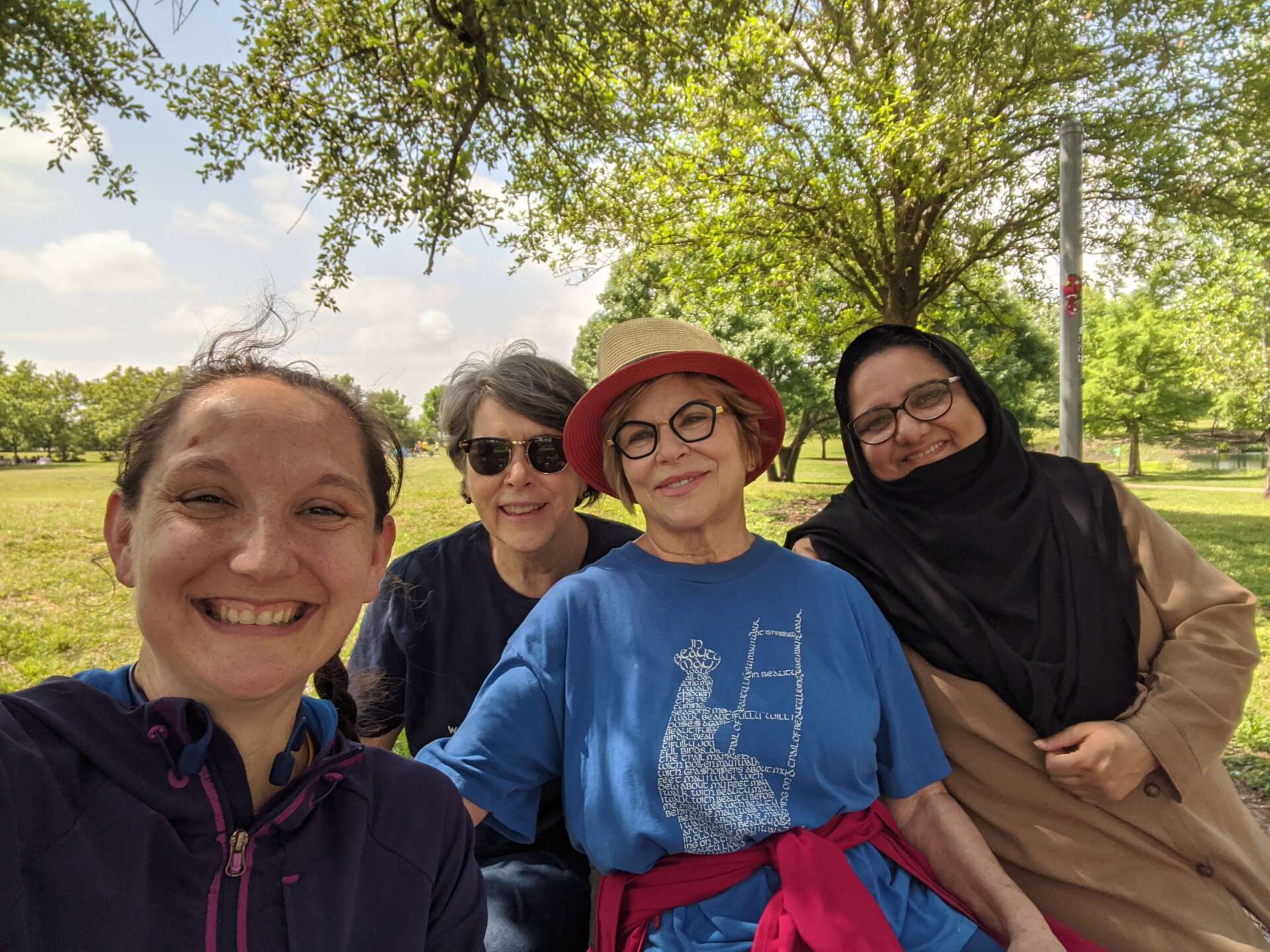
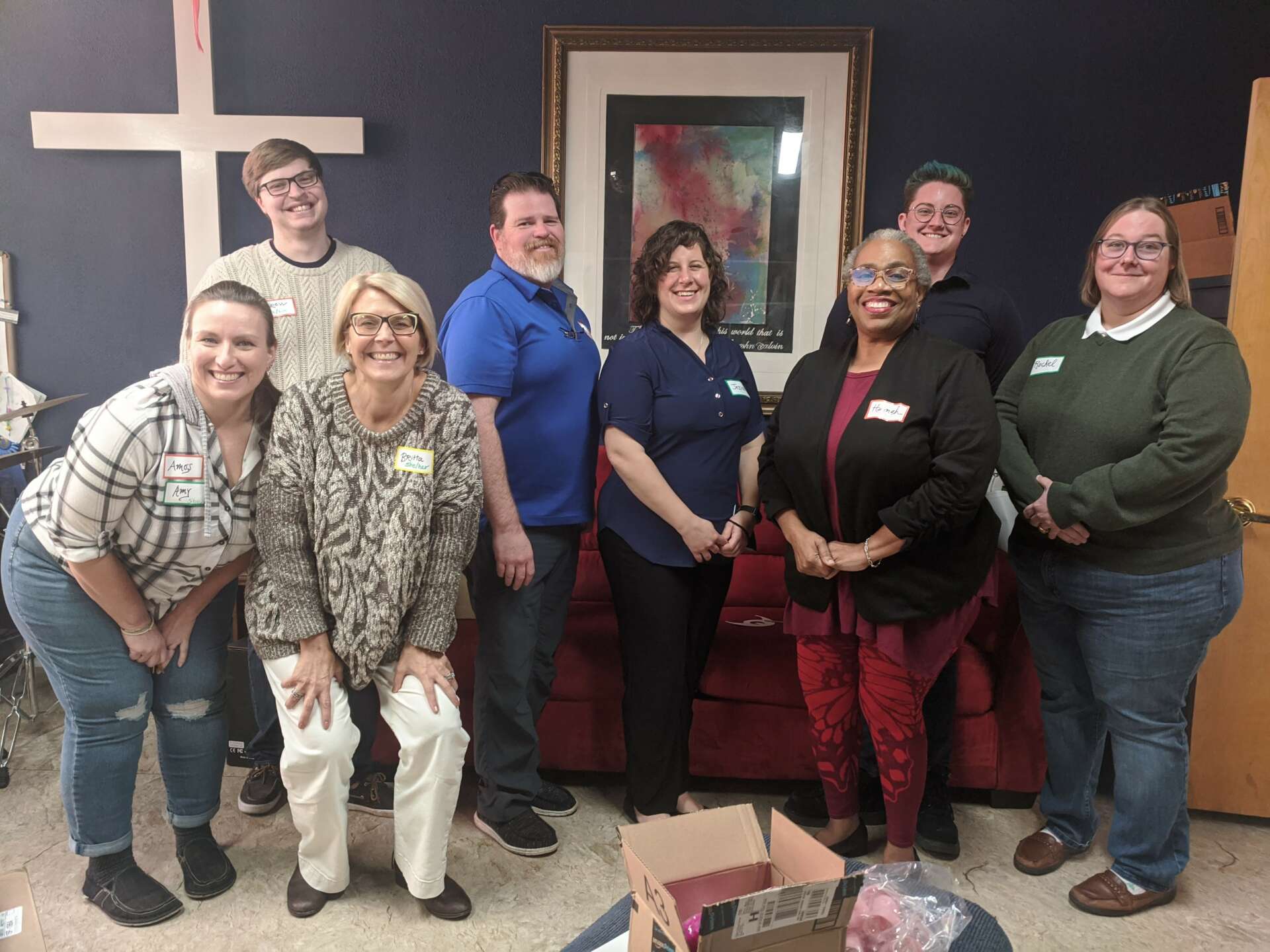
As always, we appreciate you sharing your insights and we’ve got a few more questions for you, but before we get to all of that can you take a minute to introduce yourself and give our readers some of your back background and context?
Hi! I’m Rev. Carrie Graham, the founding pastor and director of The Church Lab. Our mission is to explore innovative paths of spiritual growth for all, discovering the Church’s future and the future of faith practice. We do this by long-term, small group experiences – a recipe for lasting transformation, we’ve discovered.
Our central focus is our inter-religious dialogue group, where folks of all sorts of belief systems convene to build important bridges in an era of division, to make unlikely friends, and to find themselves growing spiritually as a direct result of this process. We conduct other experiments for spiritual growth in the arenas of worship or formation of service, and we support other innovative ministry experiments with our Empowering Experiments mini-grant program each year. When we are not conducting our own experiments in spiritual growth, we spend the other half of our time helping faith leaders and lay leaders in churches with their own new experiments. We help them learn about the possibilities for the future of faith practice, and we provide support, connection and development which empowers them to sustainably experiment within the own establishments to which they are called.
I know. It’s a mouth full. Suffice to say, people are sprinting away from institutionalized religion. Thousands of churches in the United States close each year; that was true before the pandemic even began, much less now. We recognize that spirituality – the need to explore, ask questions, be challenged, be supported, and just generally grow as a person in this realm – is a timeless need, whatever may be happening to the institution or perceptions of it. We are here to experiment with what the future of faith practice might look like, with the notions that Americans may very well be able to thrive with access to spiritual growth in a context which speaks to them today and going forward.
I got into this slowly, over time. I had my own negative and positive experiences with religious institutions while growing up. In my initial years as a congregational minister, I worked with a start up church full of people nearing religious burnout, who had their own negative experiences but were hanging onto theology and/or religion by a thread. They weren’t looking for gimmicks; they had rich, nuanced questions and needed the freedom to explore them without being stifled or distracted by some churches’ more superficial attempts to attract congregants through guitars, fog machines and lattes. After this, I became a secret shopping consultant for a Protestant denomination and visited church after church, making observations about their practices and how welcoming to 18-35 year-olds they would or could be, and how. During this time, I learned a great deal about the strengths and struggles of denominational entities themselves, as church attendance and donations began to hemorrhage across the board. I went on to become a part-time program director at a seminary, designing and facilitating cohorts for seminarians around theology and money. With congregational, denominational and seminary experience under my belt, I found I had learned a great deal about the various parts of American religion, where it was headed, and what faithful risks and experimentation might help move spiritual practice forward, even if not the institutions themselves in all cases. And thus, my adventures with launching The Church Lab began!
What I would want others to know about us is that non-religious people with questions and thoughts about spirituality, but with nowhere to go with them, have a home in TCL. Hopefully in the future there will be more places like this, too, which offer a safe place to explore spirituality with help, but not demands, with support, but not pressure.
I’d also want others to know that as we learn lessons that are relevant to the wider community, we offer services to folks whether they are into spiritual questions or not. For instance, in learning so much about dialogue over the years, and about facilitation, The Church Lab offers anyone and everyone workshops and trainings on navigating divisive conversations and facilitation among diverse perspectives. These are highly adaptible to any given environment, and recognizing our country has deep and growing issues with division, we are here to help in any way we can with the lessons we can share from our lab, so to speak.
In terms of what makes us distinct, there are definitely partner organizations who do dialogue work, peacebuilding work, or those who provide support and connection for ministers, or those who try new ways to foster spiritual growth. We see all these efforts as naturally going hand in hand. We learn from combining them, particularly in connecting and supporting those engaging innovative experiments for the sake of spiritual growth, as this movement is so grassroots that we often work in isolation.
We also understand dialogue work as perhaps the most accessible, inclusive form of spiritual practice and growth that is worthy to be practiced, and which has positive ripple effects in our religious and wider communities alike. This is distinct because most dialogue organizations’ approaches are built primarily on peacebuilding; we see our purpose as two-fold, and we see both benefits as deeply important for the future of our world.
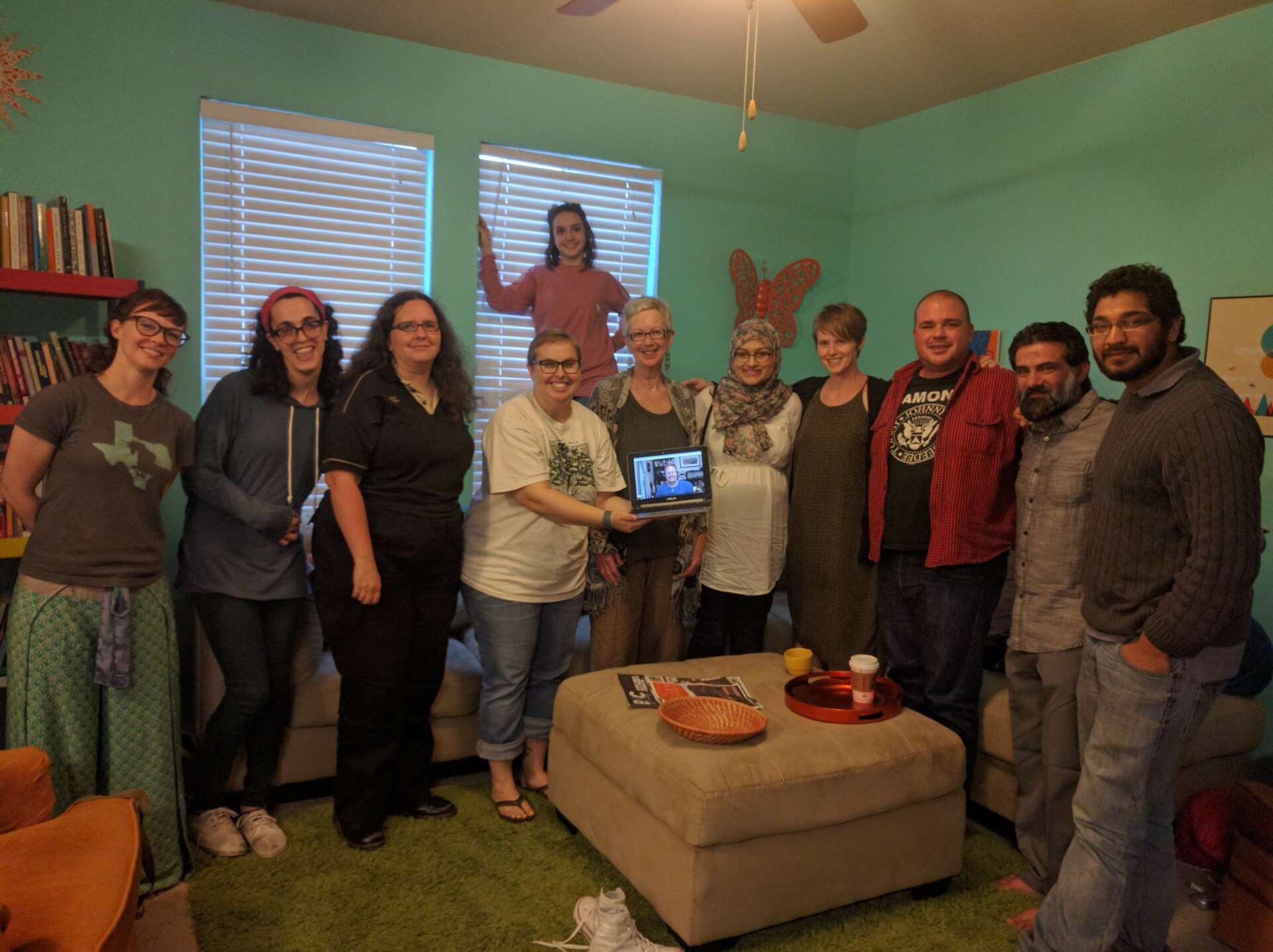
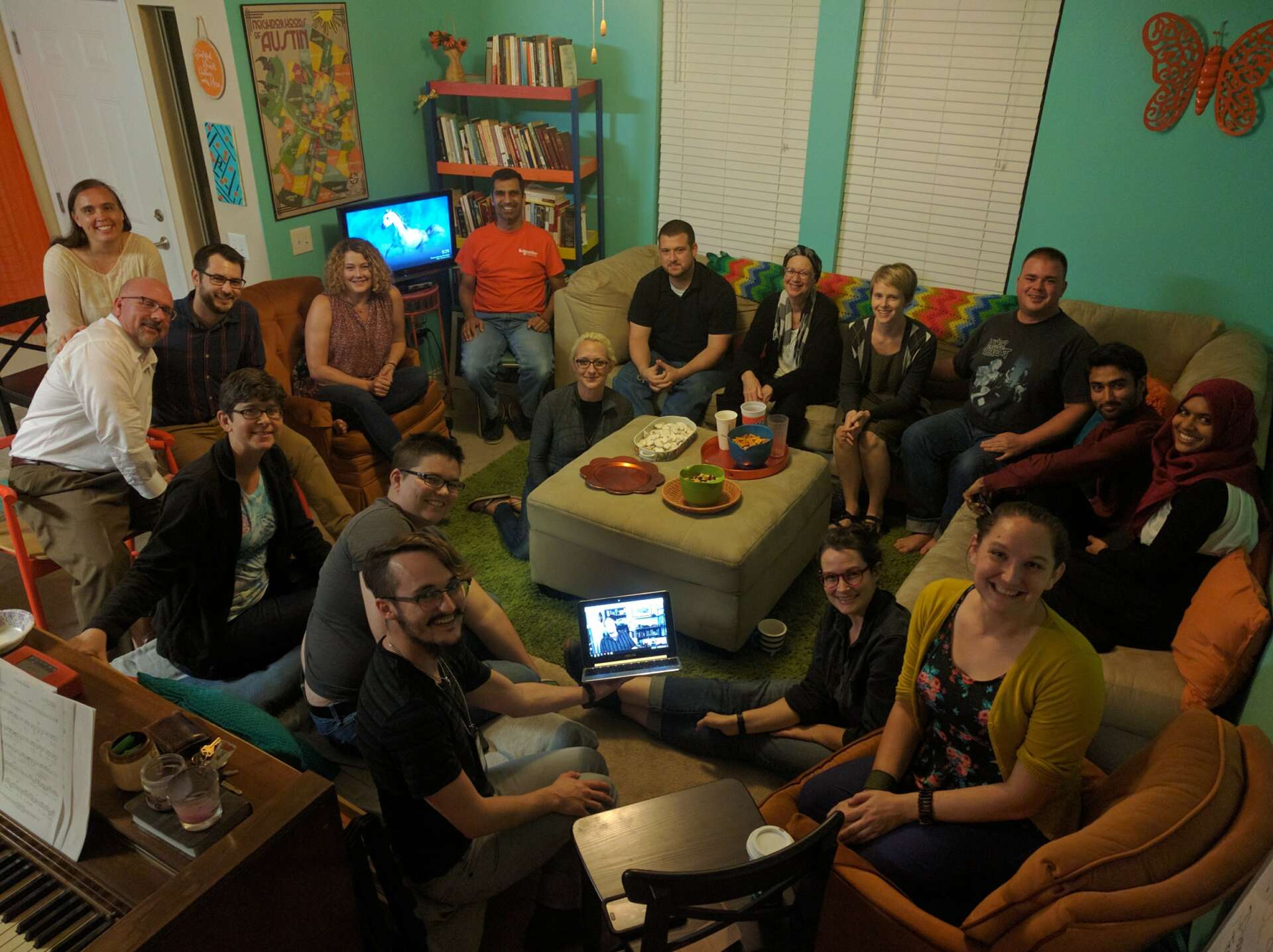
How did you put together the initial capital you needed to start your business?
I put together a fundraiser and launch fundraising event in 2013, utilizing a relational model through a coach who was gracious enough to work with me pro bono, believing in our cause. In this model, emphasis is placed on one-on-one meetings introducing the concept, the need and the ask for their involvement. People pledged monthly donations for a requested one to three years, with three years being to help create stability and maximize ministry time over fundraising time throuhgout the year. Originally, I was correctly advised, people would generally donate because they knew and believed in me. The goal was to continue communicating about the mission effectively enough that as soon as possible, friends and strangers alike would carry their own motivation for supporting the cause, rather than it being centered around me as a person. Luckily, this strategy has worked well over time, too.
The fundraiser and event brought in about $20,000. Our constituents tend to be middle class incomes at best, and so we have consistently thrived as a simple organization with a loyal pledge base, rather than an organization funded by a few wealthy donors. They give generously and we squeeze water out of rocks, so to speak. As time has moved on, our donation levels have differentiated a bit more, though our focus remains on a relational model who partners with all our donors, rather than centralizing our donor relations on those with any particular set of means.
The remarkable nature of our launch came in an unexpected grant from the then titled Austin District of the United Methodist Church, which after fundraising about $20,000, also gave us $20,000 through a grant. We wanted to be strategic about a sustainable lens for our launch, and so while we had initially designed a budget for a $20,000 goal to be met and harnessed in year one, here we had double that. We asked each of our pledgers to consider continuing their pledge to create an emergency fund for us in our first year, such that we would spend the grant and save everything they gave. 100% of our givers agreed! As such, we were able to launch with our modest goal for an original budget and ensure that we had a rainy day fund along the way. This has come in handy in more ways than one over the last decade! I cannot recommend highly enough emphasizing the early formation of an emergency fund that will make a difference for your budget in case of a seasonal or one-time crisis.
In order to protect our emergency fund, our board created a policy alongside me that defined it as something that could only be spent with unanimous explicit consent from the board. Protecting the funds in this way, unique to any other way we spend budget line items, has also preserved our cushion throughout our journey.
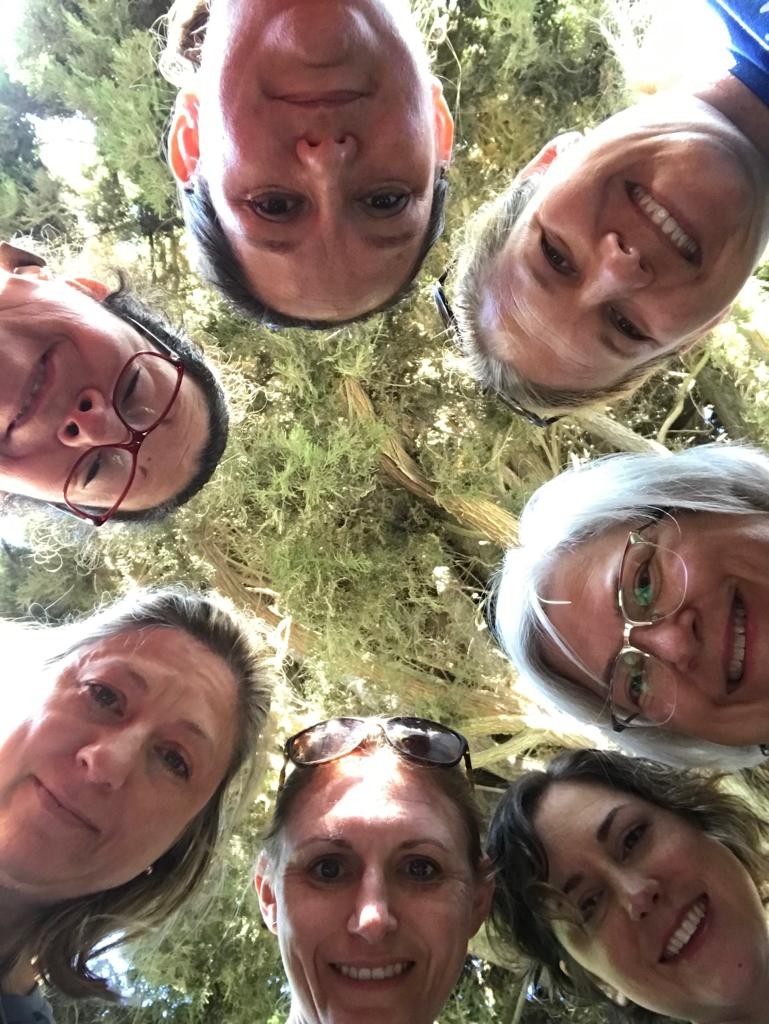
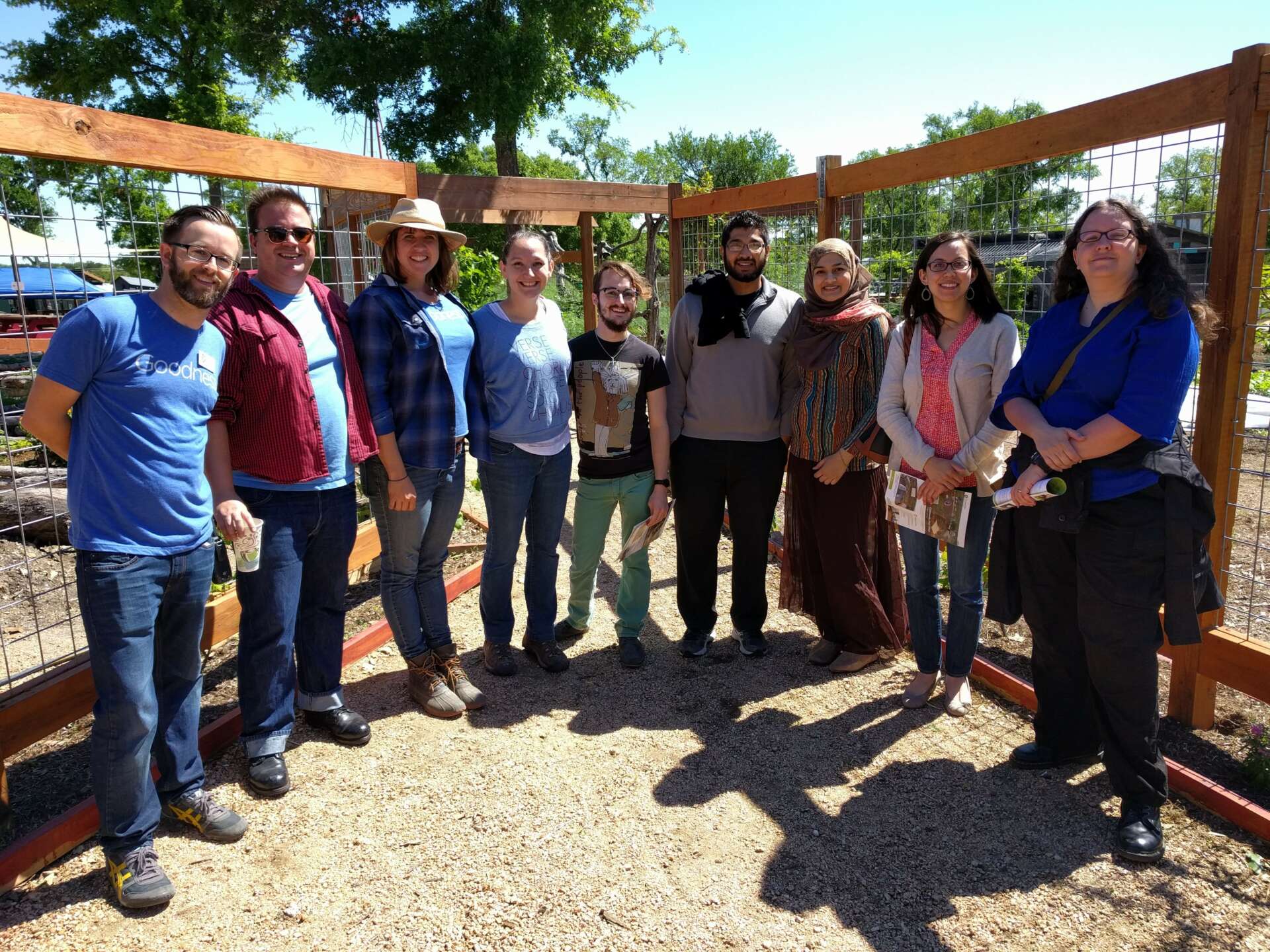
Can you open up about a time when you had a really close call with the business?
At the end of 2019, we decided it was finally time to expand TCL to full-time work for me. I had been working about 20-30 hours per week up to this point, with more and more hours on my plate. Most of my free lance work as a consulting minister was moving under the umbrella of TCL. We raised some money that served as a runway to generate increased consulting business such that a full-time equivalent of Church Lab work would surface by mid-2020.
Of course, it would become impossible to generate the new in-person, relationship-based work with churches I was hoping to engage when early 2020 arrived, with the arrival of the COVID-19 pandemic instead. Our mid-2020 deadline to lock in enough business for the now full-time design of The Church Lab was in a freefall.
From a spiritual standpoint, it became important at this point to be open to the idea that The Church Lab had served its purpose and that it would not be wise to strive too hard after business if it were not mission-centric. Working too hard to just get any work at all and call it TCL work was not a better move than simply closing or downsizing again. I worked with an executive coach around similar themes with very unpredictable fundraising that we did throughout the pandemic; working to trust that what materialized was what needed to materialize and letting go of the rest rather than moving into an unsustainable lifestyle of working harder than is healthy in an effort to control that which is out of my control. This was important personal, spiritual and leadership formation during a time of crisis for all. The Serenity Prayer continues to play a key role in my life and work today:
God, grant me the serenity
To accept the things I cannot change
The courage to change the things I can
And the wisdom to know the difference.
-Reinhold Neibuhr
From there, I worked -with lots of help- to secure PPP assistance that created a needed lifeline and kicked the can down the road on the question of our existence. It was during the early portion of this time period that I received what I would perceive as a Providential phone call.
Bee Moorhead, the director of a faith and public policy organization called Texas Impact, rang me out of the blue. She said, “I still don’t really understand what The Church Lab does, but I have a crazy idea, and I think TCL is the one to implement it.” I liked the sound of this.
Bee had in mind a program that would come to be called Reimagining Service, and it resulted in TCL harnessing its mission to help lay leaders across the state of Texas throughout the pandemic. Instead of generalized experiments toward the future of faith practice, we were helping online cohorts of faith practitioners of a diverse spectrum of Protestant congregations to consider the shifting needs of their communities, their own shifting resources, and how to serve others creatively and strategically in the midst of those changes. This was the perfect experiment for us to guide others through during this time, and it created 2 years of work that succeeded in making a sustainable expansion of our mission a success, even with the sudden onset of a global pandemic.
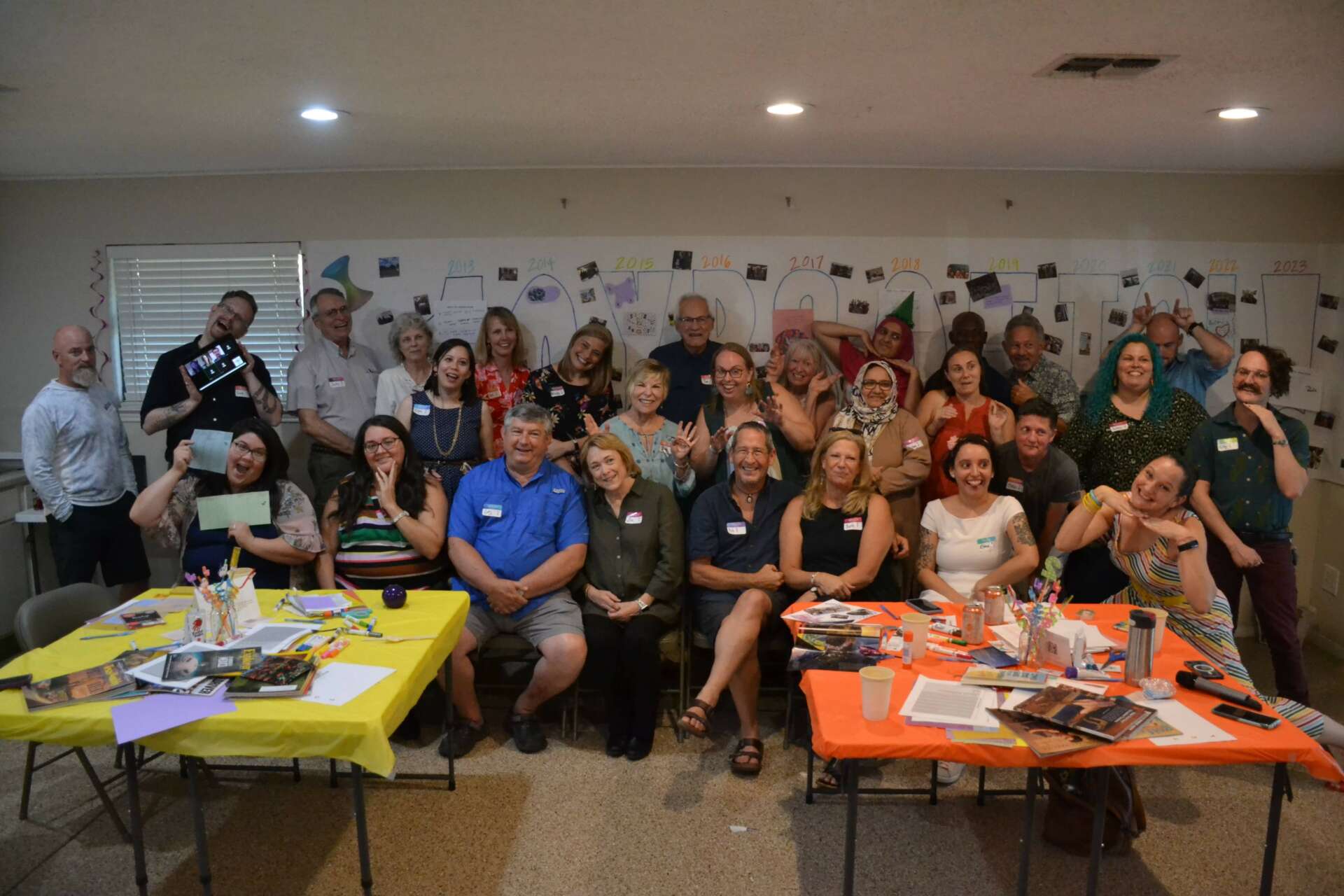
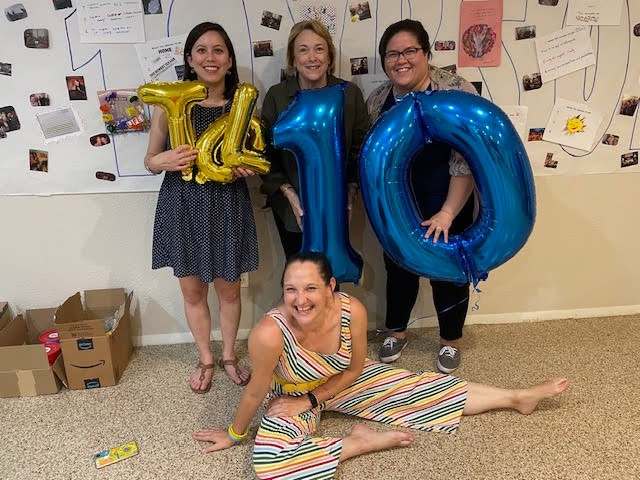
Contact Info:
- Website: thechurchlab.org
- Instagram: @thechurchlab
- Facebook: facebook.com/thechurchlab
- Linkedin: https://www.linkedin.com/in/carrie-graham-42a7177/
- Twitter: @thechurchlab
- Youtube: https://www.youtube.com/@thechurchlab808


